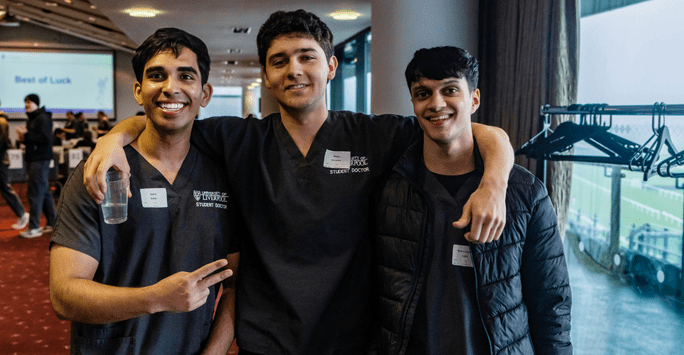
This March, Liverpool School of Medicine once again descended on Aintree Racecourse to run a final round of clinical assessments for our final year students giving them the opportunity to demonstrate skills and competencies acquired throughout their years on the MBChB programme ahead of graduating this summer.
Expertly led by the Clinical Skills team, the assessments involved over 350 student doctors, 120 simulated patients, 40 support staff and more than 360 clinical examiners. The scale of the operation simply has to be seen to be believed!
💪It takes a huge amount of co-ordinated effort to get everything ready on our exam floor.
— UoL School of Medicine (@LivUniMedicine) March 10, 2023
🙏 A big thank you to all of our Clin Ed team, the team at @AintreeRaces and everyone who volunteered their time to examine at our Y5 OSCEs earlier this week! pic.twitter.com/3a4OPKH8VH
Two such examiners were Neil Henney and Christopher Veevers who took a moment out to reflect on what they get out of examining at an event of this size as well as offer a word or two of encouragement to our soon-to-be FY1 doctors.
As the School’s newly appointed Academic Programme Director, Dr Neil Henney is responsible for the day-to-day management, organisation and delivery of the MBChB programme. While Christopher Veevers is a Paramedic and Undergraduate Clinical Facilitator at Blackpool Teaching Hospitals NHS Foundation Trust.
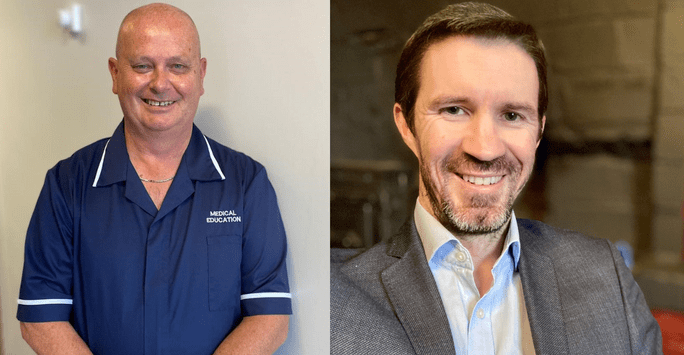 (L-R) Christopher Veevers and Neil Henney
(L-R) Christopher Veevers and Neil Henney
What most impressed you about how the assessments were run today?
Neil: I was really impressed with the organisation - I’ve not seen such complex logistics managed so well at this scale before. This is a very important event in the school calendar when our Year Five student doctors have the opportunity to show us some of the key skills they have developed as they approach the end of their time with us at the School of Medicine. It is very obvious that a huge amount of work goes into every aspect of the event to achieve this.
And of course, it’s quite an impressive sight to watch our students arriving en masse dressed in scrubs looking every inch the budding professionals they are destined to be.
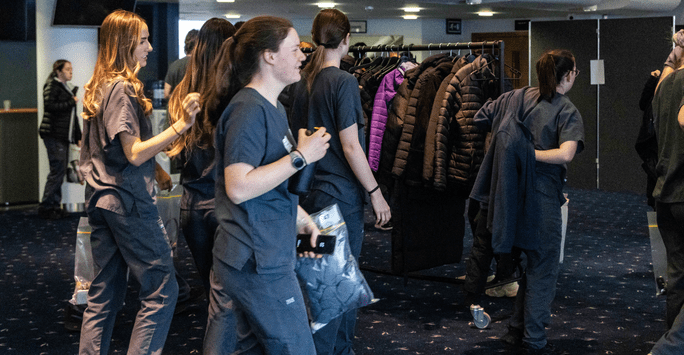 Students arrive at Aintree
Students arrive at Aintree
Christopher: Having run clinical exams for a number of years myself I was impressed with the slick professional organisation of the team and the day. The team from Liverpool were very supportive to the Examiners leading up to the day with knowing when and where to turn up as well as the online learning that gave me an understanding of my role and expectations of a clinical station and how to evaluate the students.
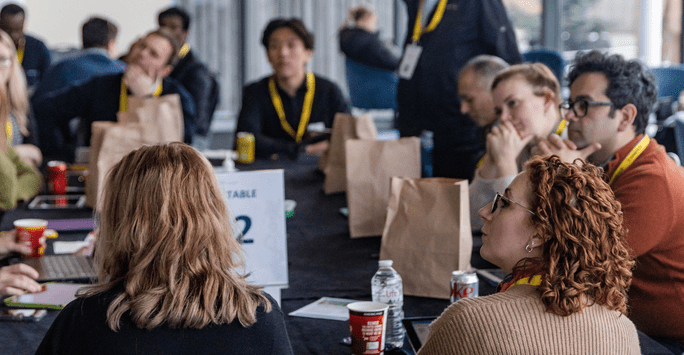 Examiners are briefed ahead of the assessment
Examiners are briefed ahead of the assessment
On arrival at the venue I was greeted with enthusiasm and confidence in the system that was so well organised and run on the day.
The day had six stations run in 15 circuits resulting in over 90 examiners present, although I always felt I was treated as an individual.
I was kept refreshed by the team with plentiful tea and coffee and lunch and snacks during the day. I was placed together on a table with other examiners where we were guided through our station by the clinician that set that station. At the station itself, I was supported by a team from Liverpool as well as a host of volunteers and simulated patients.
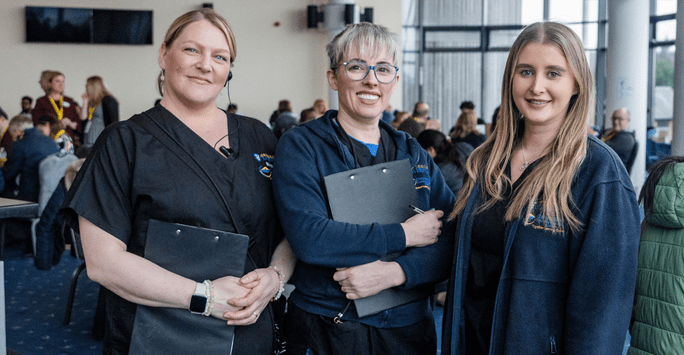 (L-R) Hannah Crossman, Kristal Clark and Abbie Keogh, part of the Clinical Skills Team
(L-R) Hannah Crossman, Kristal Clark and Abbie Keogh, part of the Clinical Skills Team
What benefits do you feel you gain as an examiner at such a large-scale assessment?
Neil: It is a privilege to be involved in such a key stage of undergraduate medical education, during which examiners get a glimpse of the wide range of skills and knowledge the student doctors have gained and are able to combine to meet the demands of each scenario.
Participating in the clinical assessments is also a fantastic opportunity to catch up with old friends and colleagues, and to meet new colleagues from the broad network of healthcare professionals and medical educators across Liverpool and the North West.
And it’s also an opportunity to learn something new! I’ve been a clinical examiner in various places over quite a few years and I really do learn something new (in fact, usually quite a few new things) every single time I examine.
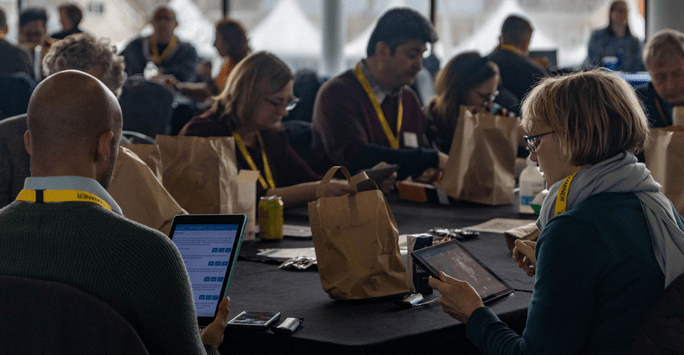 Examiners go through their clinical scenarios
Examiners go through their clinical scenarios
Christopher: Being an examiner helps guide my personal clinical practice as well as my ability to support students coming up to their exams as I am able to advise them on tips and tricks that can help in their preparation and performance during the assessments. It has helped me to support the students with their psychological safety as well as their pre-exam warm up, similar to sports.
You should sign up to be a clinical examiner if you are interested in…
Neil: Supporting the next generation of doctors, networking with clinician and educator colleagues, and even if you would welcome a bit of time between assessments to find a quiet corner in a lovely setting to work in peace!
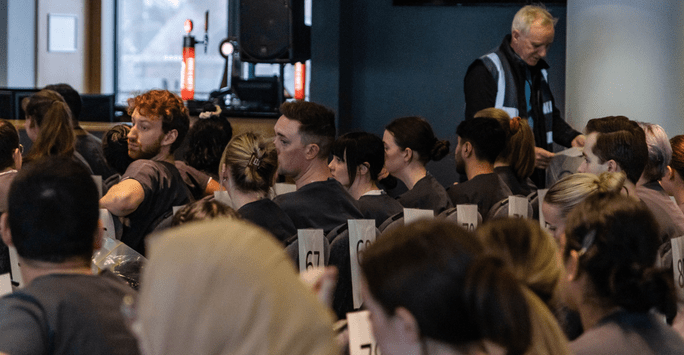 Students attend a pre-exam briefing
Students attend a pre-exam briefing
Christopher: Supporting and developing the future of high-quality medical education and best practice nurturing.
Based on your interactions with students today, what message would you send to them as they look towards their foundation training?
Neil: You have gained a large number of skills and a wealth of knowledge on your education journey so far. But remember, being a good doctor really is a journey and your confidence and expertise will continue to grow throughout your career, so long as you fully embrace the opportunities that educational experiences provide.
Seek out and use every opportunity you can to learn, to reflect, to practice, and then in turn to teach others, and you’ll thrive as the doctor you dream of being.
Christopher: All students that I encountered presented themselves in a professional manner demonstrating their knowledge and skills as a healthcare professional. This should give them confidence in their ability as they go into practice, that they have been assessed as a competent professional to begin work as a medical doctor.
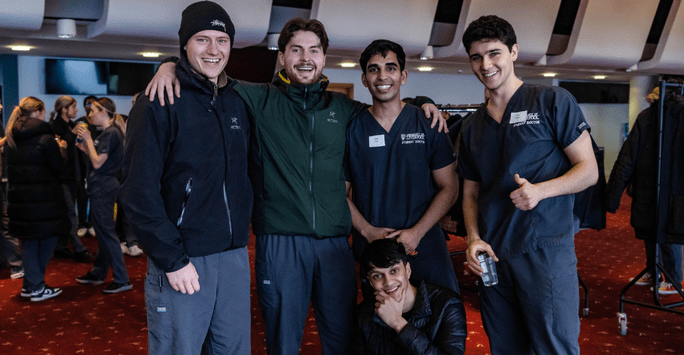 Students in good spirits at Aintree
Students in good spirits at Aintree
Discover more
- Interested in studying medicine? Learn more about the MBChB programme at Liverpool on our Undergraduate Course webpage (link).
- Keen to get involved in our next round of clinical assessments? We welcome healthcare professionals of all levels and specialties to be a part of our examiner team. Head to our Examiner Portal (link) to learn more and sign up for sessions this June and July, when we will be back at Aintree.